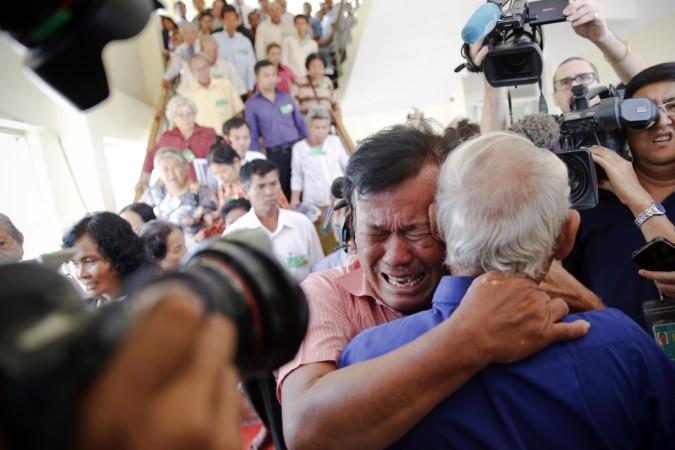
A UN-backed tribunal in Cambodia has found two top Khmer Rouge leaders guilty of crimes against humanity during the country's 1970s terror period, and has sentenced the duo to life in prison.
The verdict came three and half decades after the fall of the Khmer Rouge regime. Nuon Chea, 88, served as leader Pol Pot's deputy and Khieu Samphan, 83, was the Maoist regime's head of state.
The duo is the first top-level leaders to be held accountable for their crimes.
They were accused of playing key roles in a regime during the 'Killing Fields' era from 1975-1979. The regime oversaw death of two million people, who died due to starvation and overwork or were executed as enemies of the state.
Judge Nil Nonn said the men were guilty of "extermination encompassing murder, political persecution, and other inhumane acts comprising forced transfer, enforced disappearances and attacks against human dignity."
Lawyers for the pair said they would be appealing against the ruling. "It is unjust for my client. He did not know or commit many of these crimes," Son Arun, a lawyer for Nuon Chea, told journalists outside the court.
Who Were the Khmer Rouge?
Khmer Rouge were a Maoist regime that ruled Cambodia from 1975-1979, which was lead by Saloth Sar, better known as Pol Pot.
The notorious regime abolished religion, schools and currency in an effort to create agrarian utopia, the BBC notes.
The regime under Pol Pot has been blamed for the deaths of up to two million people, who died due to starvation, overwork or by execution. Pol Pot was ultimately defeated in the Vietnamese invasion in 1979, but he fled and remained free until 1997. He died a year later.
The regime sought to create an agrarian society and cities were emptied while there residents were forced to work on rural settings. As the economy of the country fell, many starved to death, while others were worked to death.
During the four violent years, the Khmer Rouge also killed all those people it considered to be enemies including minorities, former officials, intellectuals and their family members.
While Chea was often seen as an ideological driving force with the notorious regime, Samphan was the public face for it.












